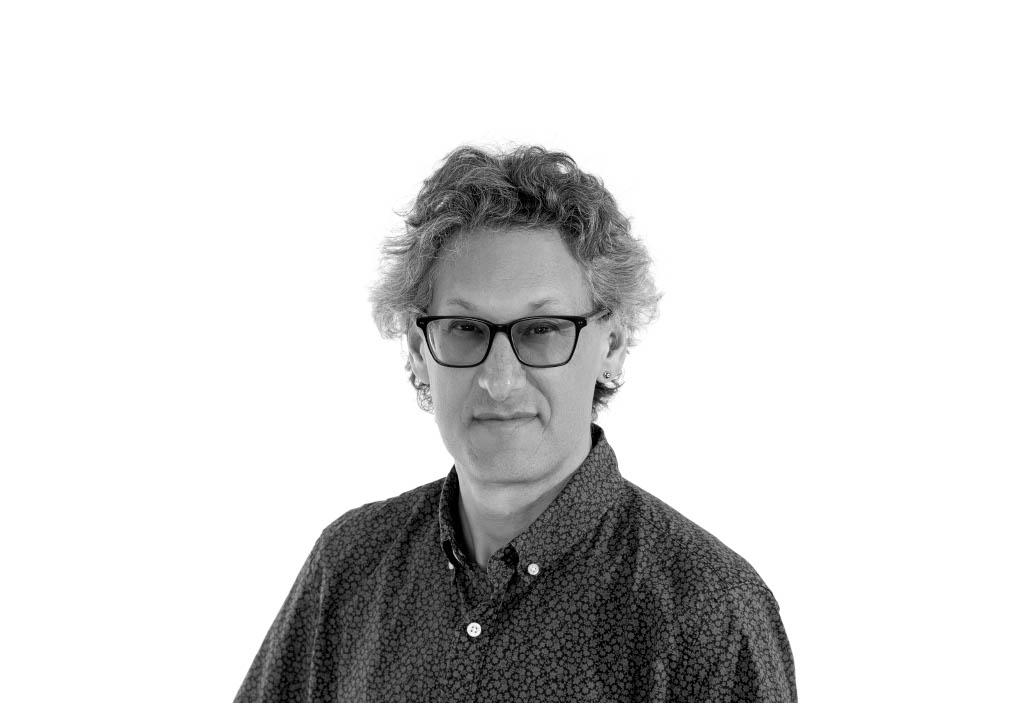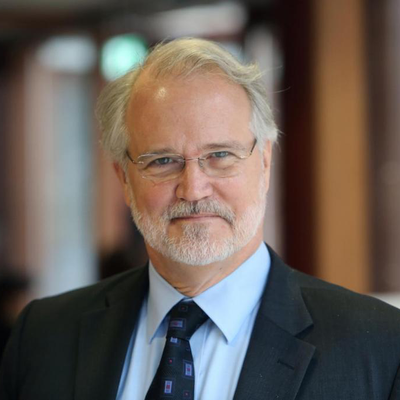LSE Religion and Global Society is an interdepartmental research unit which conducts, coordinates and promotes social science research that seeks to understand the many ways in which religion influences, and is influenced by, geopolitical change.
This unit is a partnership between the Faith Centre and the Anthropology, International Relations and Methodology departments. We also collaborate with other departments and academics from across the School to support interdisciplinary religion-related expertise.
Revd Prof James Walters
Director
Chaplain and Professor in Practice
Professor James Walters is the Director of the LSE Faith Centre and the Religion and Global Society research unit. He leads the team in the centre’s mission to promote religious literacy and interfaith leadership through student programmes and global engagement, along with research into the role of religion in world affairs. He is a Professor in Practice in the Department of International Relations and an affiliated faculty member at the Department for International Development. He has published a number of books including Baudrillard and Theology (2012), Religion and the Public Sphere: New Conversations (2018), A Christian Theology of Chaplaincy (2018), Religious Imaginations and Global Transitions (2018) and Loving Your Neighbour in an Age of Religious Conflict (2019).
Contact: j.walters2@lse.ac.uk
Dr Hanane Benadi
Research Officer
Dr Hanane Benadi is is an anthropologist working at the intersection of ethics, politics, religion, and climate change in the MENA region. She is currently the Research Officer on the Global Religious Pluralities Project for the climate change and interfaith relations strand. She also the PI on the British Academy-funded Gender, Religion, and Climate Change: Women as Producers and Translators of Climate Knowledge in Egypt, also based at RGS. Previously, she was an IASH-Alwaleed Postdoctoral Fellow at the University of Edinburgh. Hanane received her PhD in Social Anthropology from the University of Manchester in 2017.
Contact: h.benadi1@lse.ac.uk
Professor Carmody Grey
Visiting Professor
Dr Grey is Special Professor of Integral Ecology at Radboud University (Netherlands). Alongside her Visiting Professorship at LSE, she is Adjunct Professor of Ethics at the University of Bern (Switzerland). She was previously Assistant Professor of Catholic Theology at Durham University. Since joining Durham in 2018, she forged a global reputation in philosophical theology and theological ethics, with a focus on science, nature and technology. Her monograph Theology, Science and Life was published in 2023. She’s in high demand as a speaker and broadcaster in the UK and across the world. Grey holds multiple degrees in theology and philosophy (Trinity College Oxford, King’s College Cambridge, the University of Bristol and the University of Nottingham) as well as a postgraduate degree in conservation biology (from Edinburgh).
Kristian Noll
Partnerships and Impact Coordinator
Kristian Noll leads on partnerships and impact activities at the Faith Centre, and was Project Officer for Global Religious Pluralities.
Kristian joined the Faith Centre in September 2023. He holds a BA in political science and Norwegian from St Olaf College (Minnesota, USA) and completed his MSc in Environmental Policy and Regulation at the LSE in August 2023. Prior to joining the LSE Faith Centre, Kristian worked in the German Bundestag as a participant in the International Parliamentary Stipend Program and as a parliamentary intern in the UK House of Commons. Kristian is interested in the intersection between faith and politics, particularly in relation to environmental and foreign policy.
Contact: k.m.noll@lse.ac.uk
Ella Jones is the Religion and Global Society Blog Editor, and is responsible for co-ordinating the Religion Scholar's Network events.
She holds a BA in Theology, Religion, and Philosophy of Religion from the University of Cambridge, and an MSc in Social Anthropology (Religion in the Contemporary World) from LSE.
Prior to joining RGS, Ella worked as a Research Assistant in the Department of Sociology and at global technology companies Data.Ai and Twilio. Her research interests are in digital anthropology, particularly the affective impact of recommender algorithms.
Contact: e.jones14@lse.ac.uk
Jessica Hazrati is the Centre Manager at the Religion and Global Society Research Unit
She is responsible for the day-to-day running of the unit. She oversees the unit’s financial arrangements, execution of events and research activities, external communication, and supports the strategic planning and fundraising.
Prior to joining, Jess worked in the Interfaith sector delivering place-based community building projects. She holds a MTh in Theology and BA in Philosophy, Religion and Ethics, both from Heythrop College, UoL, and is particularly interested in political theology and how faith engages with social justice.
Contact: j.hazrati@lse.ac.uk

Dr Marc Baer is Professor of International History at the LSE. He is the author of the following books: Honored by the Glory of Islam: Conversion and Conquest in Ottoman Europe (Oxford University Press, 2008), winner, Albert Hourani Prize, Middle East Studies Association of North America, Best Book in Middle East Studies; The Dönme: Jewish Converts, Muslim Revolutionaries, and Secular Turks (Stanford University Press, 2010); At Meydanı'nda Ölüm: 17. Yüzyıl İstanbul'unda Toplumsal Cinsiyet, Hoşgörü ve İhtida (Death on the Hippodrome: Gender, Tolerance, and Conversion in 17th century Istanbul) (Koç Yayınları, 2016); German, Jewish, Muslim, Gay: The Life and Times of Hugo Marcus (Columbia University Press, 2020); Sultanic Saviors and Tolerant Turks: Writing Ottoman Jewish History, Denying the Armenian Genocide (Indiana University Press, 2020), winner, Dr. Sona Aronian Book Prize for Excellence in Armenian Studies, National Association for Armenian Studies and Research (USA); and The Ottomans: Khans, Caesars, and Caliphs (Basic Books, 2021), short-listed for the Wolfson History Prize.

Professor Craig Calhoun is a Centennial Professor at the LSE and University Professor of Social Sciences at Arizona State University holding joint appointments in in the Schools of Politics and Global Studies, the Future of Innovation in Society, Public Affairs, Sustainability and Arts, Media and Engineering. Calhoun served as director and president of the London School of Economics and Political Science (LSE) from 2012 to 2016. Calhoun’s work focuses on strengthening the ability of the social sciences, working together with the natural sciences, engineering and humanities, to address the most complex challenges facing society today—from crises in democracy to the shifting nature of globalization and the future of place-based communities, the complicated social and ethical issues raised by new technologies, and the need for creativity, solidarity, and determination in order to achieve just and sustainable futures.He is the author or coauthor of 9 books, editor of another 22, and has published more than 70 journal articles and 100 book chapters that address culture, social movements, education, communication, religion, nationalism, the impact of technology, capitalism and globalization, critical theory and philosophy, and contemporary and historical empirical research. His work has been widely reprinted in anthologies and translated into 21 languages.

Dr Fenella Cannell is a specialist in Southeast Asian anthropology, and has also conducted research on kinship and religion in the United States. She worked in the Philippines in 1988-89, 1992, and 1997. Her fieldwork was with Catholic rice-farming people in a rural area, but on the outskirts of a small town, where people were also exposed to complex, urbanising influences and images from Manila and from the West, especially America. Her research explored the ways in which people come to think about "culture" in a post-colonial society, and focused on women's lives and arranged marriage, spirit-mediumship, saint's cults and religion, and popular performances including transvestite beauty contests. Most recently, however, she has conducted a two-year research project on American kinship and religion, with a particular focus on Mormonism. Much of this research took place in upstate New York and in Utah. In addition to these field-based projects, Dr Cannell has written more broadly on the relationship between Christianity and social theory.
Dr Katerina Dalacoura is Associate Professor in International Relations at the London School of Economics and Political Science. Dr Dalacoura’s work has centered on the intersection of Islamism and international human rights norms. She has worked on human rights, democracy and democracy promotion, in the Middle East, particularly in the context of Western policies in the region. Her latest research focuses on the role of culture and civilization in International Relations with special reference to Turkey. She has a continuing interest in questions of secularity and secularization in the Middle East. She is author of Islam, Liberalism and Human Rights: Implications for International Relations (I. B. Tauris, 2007), Islamist Terrorism and Democracy in the Middle East (Cambridge University Press, 2011) and of a number of chapters and articles in peer-reviewed journals.
Dr Courtney Freer is an Assistant Professorial Research Fellow at LSE’s Middle East Centre. She specializes in domestic politics of the Gulf Cooperation Council (GCC), in addition to examining the role of Islamists and the interplay between Islam and politics across the Middle East.
Her book Rentier Islamism: The Influence of the Muslim Brotherhood in Gulf Monarchies, based on her DPhil thesis at the University of Oxford and published by Oxford University Press in 2018, examines the socio-political role played by Muslim Brotherhood groups in Kuwait, Qatar and the United Arab Emirates.
Dr Eleanor Power is an Assistant Professor in the Department of Methodology at the LSE. She is interested in how religious belief, practice, and identity interact with and shape interpersonal relationships. She studies these dynamics through anthropological fieldwork conducted in the South Indian state of Tamil Nadu, where she has been working since 2009. In addition to ethnography, she uses the tools of social network analysis to explore the connections between individual action and group structure. She is currently investigating questions regarding: the feedbacks between communication and cooperation, the relationship between social network structure and inequality, and the measurement of social support.
Professor Nick Robins is Professor in Practice for Sustainable Finance at the Grantham Research Institute at the London School of Economics. The focus of his work is on how to mobilise finance for a just transition, the role of central banks and regulators in achieving sustainable development and how the financial system can support the restoration of nature. From 2014 to 2018, Nick was co-director of UNEP's Inquiry into a Sustainable Financial System. Before this, he was head of the Climate Change Centre of Excellence at HSBC from 2007 to 2014. He has also worked at Henderson Global Investors, IIED and the European Commission. Nick is a board member of Investor Watch and a member of a number of advisory boards including Carbon Tracker, the Climate Bonds Initiative and CreditEnable.
Professor John T. Sidel is the Sir Patrick Gillam Professor of International and Comparative Politics at the LSE and is affiliated with the Government and International Relations departments and the Saw Swee Hock Southeast Asia Centre. His research focuses largely on Southeast Asia and has included coverage of the intersection of Islam and politics in the region, as seen in his books Riots, Pogroms, Jihad: Religious Violence in Indonesia (Cornell University Press, 2006), The Islamist Threat in Southeast Asia: A Reassessment (East-West Centre, 2007), and Republicanism, Communism, Islam: Cosmopolitan Origins of Revolution in Southeast Asia (Cornell University Press, 2021). He teaches a postgraduate course on Islam in World Politics (IR461) and is currently working on a book provisionally titled "The Making and Unmaking of Islam in World Politics."
Dr Kirsten Schulze is Associate Professor in International History at LSE. She works on communal and separatist conflicts as well as Islamism in Indonesia and the Middle East. Her publications on Indonesia include: The ‘Ethnic’ in Indonesia’s Communal Conflicts: violence in Poso, Ambon and West Kalimantan (2017), The Islamic State and Southeast Asia (2016), and Transforming the Aceh Conflict: From Military Solutions to Political Agreement (2013). From 2014-2016 Dr Schulze was the Deputy Director of LSE SEAC, from 2012-14 she was the head of the LSE IDEAS Southeast Asia Program, and from 2004-2012 she ran the Indonesia seminar series at Chatham House.
Educated at Cambridge and Yale, Dr Gagandeep Sood received his doctorate from Yale’s Department of History. Before arriving at LSE, he held research and teaching positions at Cambridge, the European University Institute and Yale. Outside LSE, he is currently Co-Editor of the Journal of Global History. Dr Sood’s main research interests lie in the Middle East and South Asia between the 17th and 19th centuries. He is also interested in Europe, China and India, and their role in the genesis of the modern world.
Dr Yoshi Kato is a Visiting Fellow based at University of Cambridge, and he is an Associate Professor of Rikkyo University, Tokyo. Born in Nagoya, Japan, Dr Kato was awarded his doctorate in 2013 from Princeton Theological Seminary for his dissertation on the controversy regarding Spinoza and his radical concept of God in the early modern Dutch Republic. His research interests range from the early modern intellectual history to sociology of religion in the contemporary Japan.
Besides his research, Dr Kato is interested in jazz, cinema, and swimming. He also plays jazz and blues guitar.